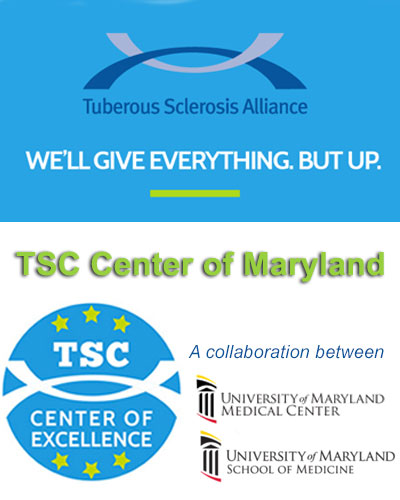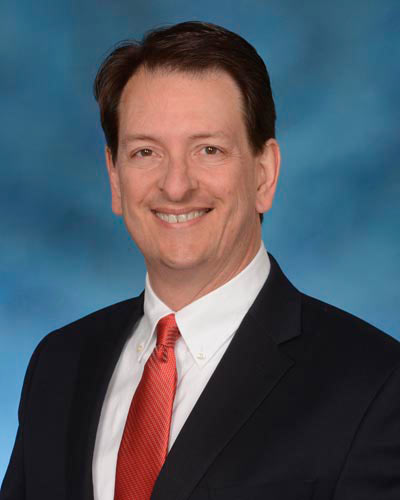April 01, 2021

Maryland’s only treatment centers for adults with autism, epilepsy, tuberous sclerosis complex, and other neurodevelopmental conditions fill a critical need for clinical care and social support
Across Maryland, adults who have aged out of pediatric programs for neurodevelopment disorders such as autism have found a critical resource in the University of Maryland Clinical Center for Adults with Neurodevelopmental Disabilities (UMCCAND) and the Tuberous Sclerosis Complex Center of Maryland (TSCCM). Launched one year ago, the two centers provide clinical evaluation, care, and treatment for a range of complex neuro-disabilities, including adult autism, epilepsy, tuberous sclerosis, and other neuro-disabilities.
These are the only such centers in Maryland and were made possible by a collaboration between the University of Maryland Medical Center (UMMC) and the University of Maryland School of Medicine (UMSOM), forming UM Medicine, as UM Medicine, along with the Tuberous Sclerosis Alliance (TS Alliance). The centers' treatment staffs sees patients from throughout Maryland and other states.
 “Nationally, there are few centers like ours that provide centralized, comprehensive care for adults with autism, epilepsy, and intellectual disabilities. We are very proud of our staff and patients for essentially creating a model for other states to build similar programs,” said Peter Crino, MD, PhD, Professor and Chair of the Department of Neurology at the UMSOM, who also serves the director of the centers.
“Nationally, there are few centers like ours that provide centralized, comprehensive care for adults with autism, epilepsy, and intellectual disabilities. We are very proud of our staff and patients for essentially creating a model for other states to build similar programs,” said Peter Crino, MD, PhD, Professor and Chair of the Department of Neurology at the UMSOM, who also serves the director of the centers.
According to data from the Centers for Disease Control and Prevention (CDC), one in 50 children in Maryland is diagnosed with autism at around 8 years of age. As they grow older, many will face a challenging lack of clinical and support resources when they age out of pediatric programs. The two centers were created to fill that gap.
For Andrea Bertrand of Rockville, Maryland, the centers have been a vital resource for managing her 28-year-old son’s autism and seizures. Her son, a classical musician and composer, quickly bonded with Crino over the pair’s mutual affinity for the tuba.
“Dr. Crino is a gift to our family. He sees my son for who he really is. He talks with him and connects with him,” Bertrand said.
Clinical services at the two centers include full-service care and diagnostic and surveillance testing, including genetic testing, electroencephalograms, magnetic resonance imaging, and blood work. The centers also provide social work services such as connecting patients and families to home health aides, nursing, and other social support services.
“The TSC Center at UM Medicine is a model for how to provide comprehensive care for adults with tuberous sclerosis complex and other neurodevelopmental disabilities. We are deeply grateful for this collaboration and look forward to building on this initiative in other states to better serve the needs of each individual living with TSC,” said Kari Luther Rosbeck, TS Alliance President and CEO.
“Neurological disabilities like autism impact a growing number of families in Maryland and the country,” said UMSOM Dean, E. Albert Reece, MD, PhD, MBA, who is also is also Executive Vice President for Medical Affairs, UM, Baltimore and the John Z. and Akiko K. Bowers Distinguished Professor, University of Maryland School of Medicine. “Rather than wait for this to become an unmanageable crisis, Dr. Crino and his team are providing treatment services and advancing groundbreaking discoveries. As a result, more patients and their families are finally finding the appropriate care they have been in search of for years.”
“These centers, made possible by our partnership with the University of Maryland School of Medicine and the TS Alliance, exemplify our mission to bring knowledge and healing to even the most complex conditions,” said Bert W. O'Malley, Jr., MD, President and Chief Executive Officer of UMMC. “We are grateful to Dr. Crino and his team for making such first-of-its-kind treatment possible. They have not been deterred even by a global pandemic in their dedication to patients with neurological care needs.”
Patients and referring providers interested in scheduling an appointment with one of the centers can call 410-328-4323 or 410-328-6266.
About the University of Maryland Medical Center
The University of Maryland Medical Center (UMMC) is comprised of two hospitals in Baltimore — an 841-bed teaching hospital Downtown – the flagship institution of the 14-hospital University of Maryland Medical System (UMMS), and a 177-bed teaching hospital, UMMC Midtown Campus. UMMC is a national and regional referral center for trauma, cancer care, neuroservices, cardiac care, diabetes and endocrinology, and women’s and children’s health. All physicians on staff at the Downtown flagship hospital are faculty physicians of the University of Maryland School of Medicine. At UMMC Midtown Campus, faculty physicians work alongside community physicians to provide patients with the highest quality care. UMMC Midtown Campus was founded in 1881 and is located one mile away from the Downtown Campus. For more information, visit umm.edu.
About the University of Maryland School of Medicine
Now in its third century, the University of Maryland School of Medicine was chartered in 1807 as the first public medical school in the United States. It continues today as one of the fastest growing, top-tier biomedical research enterprises in the world -- with 46 academic departments, centers, institutes, and programs, and a faculty of more than 3,000 physicians, scientists, and allied health professionals, including members of the National Academy of Medicine and the National Academy of Sciences, and a distinguished two-time winner of the Albert E. Lasker Award in Medical Research. With an operating budget of more than $1.2 billion, the School of Medicine works closely in partnership with the University of Maryland Medical Center and Medical System to provide research-intensive, academic and clinically based care for nearly 2 million patients each year. The School of Medicine has nearly $600 million in extramural funding, with most of its academic departments highly ranked among all medical schools in the nation in research funding. As one of the seven professional schools that make up the University of Maryland, Baltimore campus, the School of Medicine has a total population of nearly 9,000 faculty and staff, including 2,500 students, trainees, residents, and fellows. The combined School of Medicine and Medical System (“University of Maryland Medicine”) has an annual budget of over $6 billion and an economic impact of nearly $20 billion on the state and local community. The School of Medicine, which ranks as the 8th highest among public medical schools in research productivity (according to the Association of American Medical Colleges profile) is an innovator in translational medicine, with 606 active patents and 52 start-up companies. In the latest U.S. News & World Report ranking of the Best Medical Schools, published in 2021, the UM School of Medicine is ranked #9 among the 92 public medical schools in the U.S., and in the top 15 percent (#27) of all 192 public and private U.S. medical schools. The School of Medicine works locally, nationally, and globally, with research and treatment facilities in 36 countries around the world. Visit medschool.umaryland.edu
About the TS Alliance
The Tuberous Sclerosis Alliance is an internationally recognized nonprofit organization, dedicated to finding a cure for tuberous sclerosis complex while improving the lives of those effected. Founded in 1974, it works to improve quality of life for individuals and families affected by TSC by stimulating and sponsoring research; creating programs, support services and resource information; and developing and implementing public and professional programs designed to heighten awareness of the disease. For more information, visit www.tsalliance.org
Media Relations Contact:
Stephanie Janard
Media Relations Sr. Manager
University of Maryland Medical Center
Office: (410) 328-7960
Mobile: (443) 602-6937
Stephanie.Janard@umm.edu
Contact
Office of Public Affairs
655 West Baltimore Street
Bressler Research Building 14-002
Baltimore, Maryland 21201-1559
Contact Media Relations
(410) 706-5260
